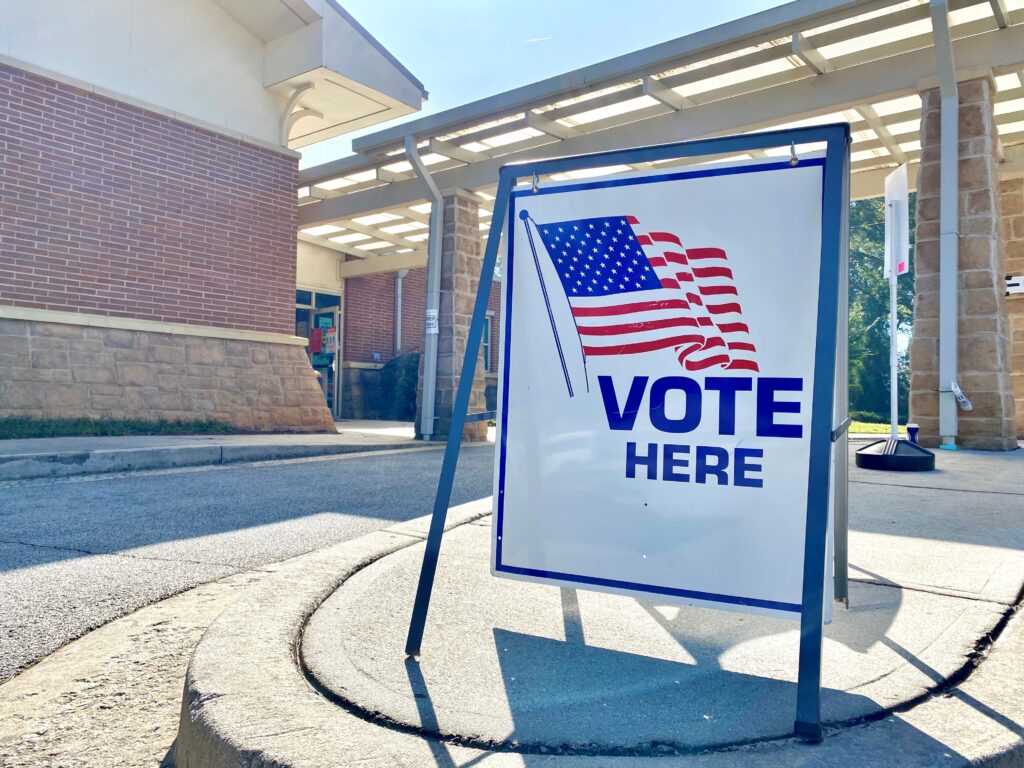
Election officials in Georgia are poised to wrap up a statewide hand recount of the 2020 presidential election Wednesday night after days of fending off unfounded fraud allegations and wrangling in some counties that located previously uncounted ballots.
County election workers across the state have hustled since last Friday to re-tally more than 5 million ballots all by hand in an unprecedented effort to audit results from the first presidential contest in nearly three decades to be won by a Democratic candidate in Georgia.
By late Wednesday, President-elect Joe Biden held a lead in Georgia over President Donald Trump by 12,781 votes, a margin that had shrunk by 1,375 votes over the past week as uncounted ballots were found in Floyd, Fayette, Douglas and Walton counties through the recount.
With the recount underway, Secretary of State Brad Raffensperger and his top deputies have batted down unproven claims of election irregularities brandished by Trump and his allies, ranging from ballot harvesting and dead voters to unverified signatures and late-arriving absentee ballots.
Raffensperger has been caught in the crossfire within his own political party as Trump and many of his supporters blasted the state’s Republican elections chief, who in turn claimed a top U.S. senator allegedly pushed him to trash lawful mail-in ballots.
Raffensperger’s office set a deadline for counties to wrap up the recount by midnight ahead of a separate deadline Friday for the state to certify the election results, marking the next step in a process to have Georgia’s 16 electoral votes likely cast for Biden on Jan. 6.
“We feel good about where we stand right now,” said Gabriel Sterling, voting system manager for the secretary of state’s office. “I’m prayerful that we can get through this and we can find a way to have everybody at the end of the day … have faith in the outcome of the election regardless of how it came out.”
Nearly all of the state’s 159 counties either had no difference between their ballot counts on election night and after the audit, or their counts differed by only a few ballots due to small human-error mistakes during the hand recount, Sterling said in a news conference Wednesday.
Twenty-one counties still needed to finish counting and complete quality-control procedures Wednesday including several larger counties like Fulton, Gwinnett and Chatham, as well as the four counties where officials located around 5,800 previously uncounted ballots.
Of those, Walton and Douglas counties each turned up just below 300 additional ballots after workers did not initially upload memory cards to store the vote counts. Walton’s added votes went for Trump by a 176-vote margin, while Douglas’ ballots increased Biden’s lead by 28 votes.
Fayette County, which located 2,755 ballots, also did not initially upload a memory card. Those ballots trimmed Biden’s lead by 449 votes in favor of Trump.
In Floyd County, 2,524 early-voting ballots could not be scanned late last month due to a technical issue and went unnoticed at the county elections office until the recount, cutting Biden’s lead by another 778 votes. Raffensperger has called for Floyd’s elections director to resign.
In all, adding the uncounted ballots to the 5 million-vote pile trimmed Biden’s original lead from 14,156 votes to 12,781 votes, giving the former vice president a close but comfortable advantage as state officials work to certify the final results by Friday.
“The process worked,” Sterling said. “We were able to find those votes and get them in the mix. People should have even better faith in the process.”
Even so, Trump allies including Georgia Republican Party leaders, Atlanta attorney Lin Wood and outgoing U.S. Rep. Doug Collins of Gainesville have slammed Georgia’s election system and cast doubt on the recount’s accuracy in recent days.
In particular, Wood sued Raffensperger and the State Election Board last Friday to have a federal judge block Georgia’s election results from being certified, alleging state officials improperly signed an agreement in March to change rules for verifying voter signatures on mail-in ballots.
Raffensperger has called the lawsuit’s claims “basically nonsense,” noting the same rate of absentee ballots were rejected due to invalid signatures in the Nov. 3 general election as during the 2018 midterms. He argued his office had tightened rules on signature verification since 2018, not watered them down.
In interviews with several media outlets this week, Raffensperger has also alleged U.S. Senate Judiciary Committee Chairman Lindsey Graham, R-S.C. – a top Trump ally – suggested he throw out all mail-in ballots in counties with high amounts of invalid signatures. Graham has denied making that suggestion.
“In this state, voters cast their ballots in secret so that no political party or candidate can ever intimidate or threaten a voter into changing his or her vote,” Raffensperger said. “We will continue to protect the integrity of the vote.”